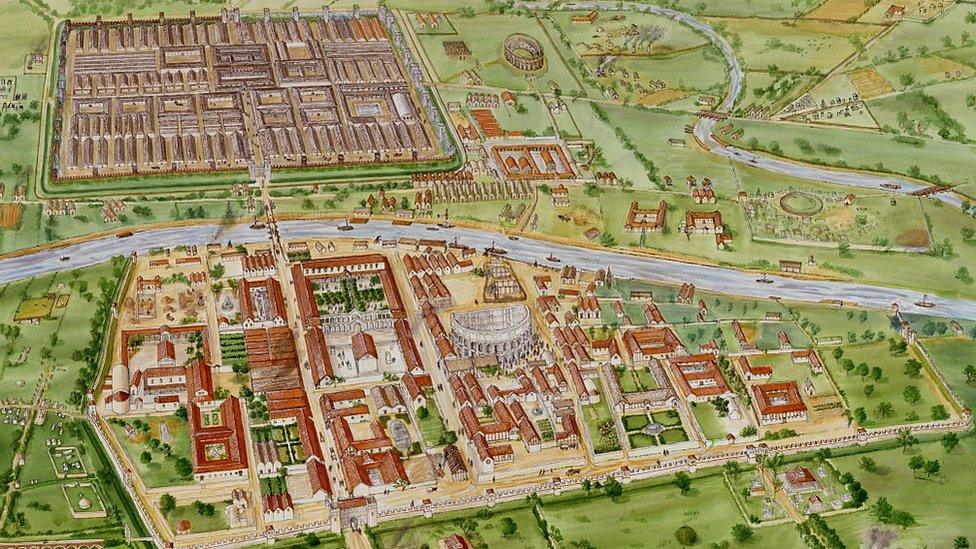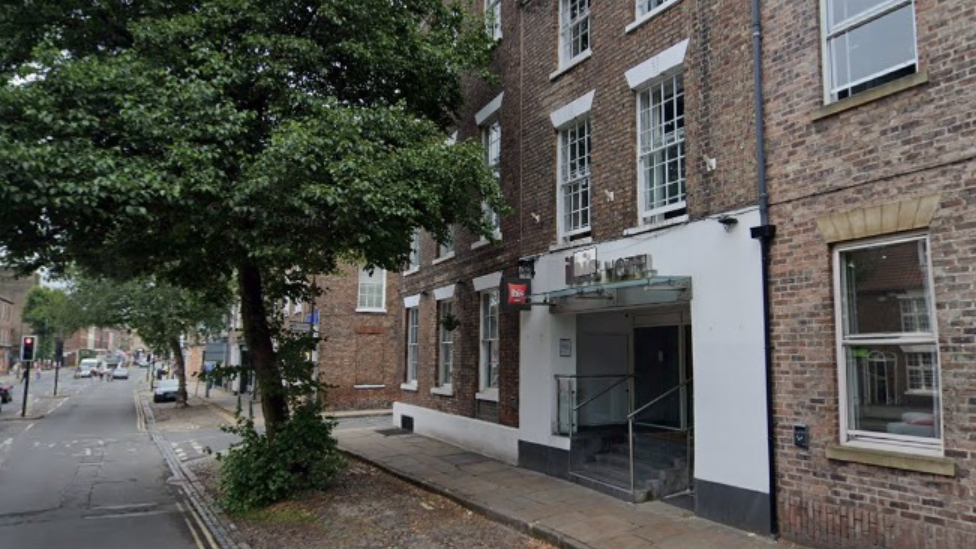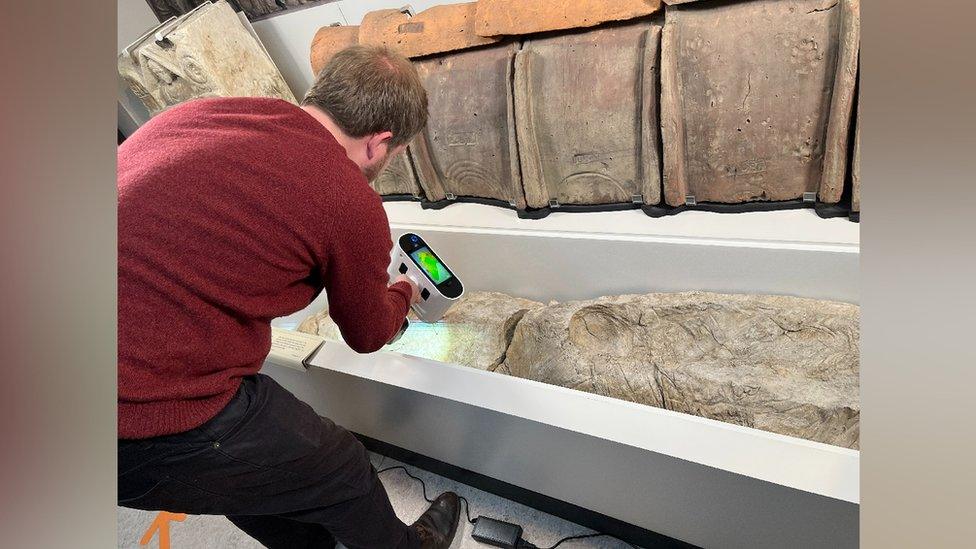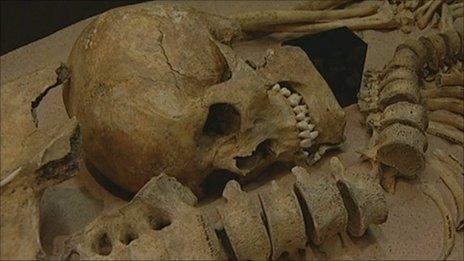York: Archaeologist to be onsite for hotel extension work
- Published

A Roman legionary fortress developed into the civilian town known as Eboracum
Archaeologists are monitoring a York hotel's building works to prevent the loss of any Roman burial finds.
The Ibis Hotel on The Mount is constructing an extension, but planners said the site is close to a Roman road and previous cemetery finds.
Roman burials were usually located beside roads outside a town's boundary wall.
Any finds indicating burials would be fully recorded and investigated but would be left in position.
SRC Construction and Paving Ltd received planning permission for a 16 bedroom extension at The Ibis Hotel, subject to archaeologists monitoring the works.
A Roman legionary fortress was established in York in AD71 and developed into the town known as Eboracum.
"The settlement persisted into a city during the medieval period, receiving a circuit of walls which corresponds approximately to the surviving walls of the modern city, and which lies approximately 0.7km to the northeast of the site," planning documents state.
According to the Local Democracy Reporting Service, the hotel is close to an old Roman road which ran from the city to Tadcaster.
"Its exact alignment is unknown, but it is believed to follow along or close to the line of Blossom Street and The Mount and probably within 50m of the site."

The hotel plans a 16-bedroom extension
They said the hotel lies northeast of one Roman cemetery and could be "part of a larger cemetery, or a series of cemeteries" either side of the Roman road.
"In 2005-2006 extensive excavations took place to the southwest and southeast of 89 The Mount in advance of redevelopment and revealed several burials, including an in situ stone sarcophagus coffin."
As a result, the documents stated: "Should significant archaeological remains be identified, a full programme of archaeological excavation and recording may be required."
All archaeological deposits and artefacts encountered during excavation will be recorded and should anything be found indicating burials or cremations, then they will be investigated only to a degree that allows for confirmation of this and then left in situ.

Follow BBC Yorkshire on Facebook, external, Twitter, external and Instagram, external. Send your story ideas to yorkslincs.news@bbc.co.uk, external.
Related topics
- Published3 June 2023

- Published28 July 2011
